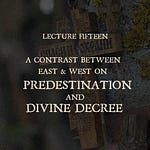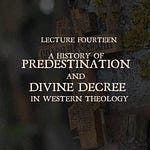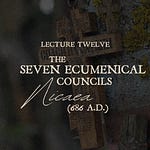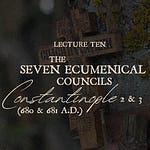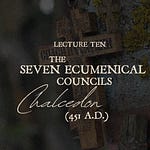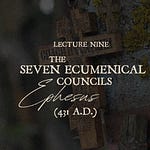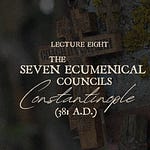These are transcripts from a spoken lecture. The audio is attached to this lesson. If there is any confusion from reading the transcript, please refer to the audio for clarification.
We are now beginning a new session. This new session is focused specifically on the history of predestination and divine decree, initially in Western Christianity, and that’s probably going to take us two full sessions to walk through that entire history, because it’s a very long history, even though I’m trying to make it brief. But then after we’ll walk through that, we will take a look at how this contrasts with the views in the east.
Now why are we looking at this topic? Well, let’s start with some basic questions. Here is everything I’m about to say to you predestined from all eternity? If so, do I have any free choice about what I’m about to say? Could I do otherwise? Am I morally responsible, if I have no free choice, am I morally responsible for what I’m about to say? And could God have ordained otherwise? These are some of the basic questions that begin to emerge in this conversation, and the New Testament is really what starts off the discussion, because the New Testament contains certain statements that appear to lean toward fate. And in the ancient world, fate was a common concept. We see it in the Greeks. We see it in the Stoics.
So let’s look at a couple of these. In the book of Acts, we hear that people are doing what God purposed them to do beforehand. This is what we find in Acts four, for example. In Ephesians, we find Paul speaking about God predestinating us to our adoption in Christ. In Romans eight, we find talk of foreknowing and predestining believers. In Ephesians one, God choosing people in Christ, before the world, before the foundations of the world. So such statements tend to lead people to think, well, perhaps there is a certain type of fate here at work in Christianity.
And the fact of the matter is, all Christian traditions believe in predestination. Why? Because Scripture speaks about predestination. The question is not whether they believe in predestination. The question is, what is it? What is it that they believe about it? What does it mean that God chose someone or predestined someone? What does it mean? Does it mean that we have no choice in these matters? Does it mean that those who believe or don’t believe really do so, just because God determined it in advance? Is our belief and unbelief, even our sins traceable to God? Is he to blame and not us? What’s the relationship between our choosing and His foreknowledge as well? These are the sorts of questions that these naturally raise, and these are the sorts of questions we’ll be looking at in the history of Western Latin Christianity, from really the dawn of the church through the Reformation, rather large span.
So the roadmap for what we’re going to be doing, and this will probably take two sessions, I anticipate not just one, is that we’ll begin with the Latin Church Fathers on predestination, before Augustine of Hippo and then after that, we’ll have to look specifically at Augustine. And the reason is because Augustine changes the conversation. I had mentioned in an earlier talk, the first talk I had done here, which is all about terms and concepts and orienting us to the types of sessions we’d be doing, that Augustine of Hippo was always a catalytic figure, always changing the nature of the discussion for the Latin West. And he does so definitively. All of Catholicism and all of Protestantism is indebted to Augustine in some way, shape or form. They all trace their roots to his ideas and insights.
So after looking at Augustine on his own and the way he changed the conversation, we’ll also look at the medieval reception and developments that follow on the heels of Augustine, and then this will set the stage for the Reformation and post-Reformation discussions, which continue in the lineage of this scholastic development.
But why? Why are we looking at this? We’re not really looking at this because I’m interested in talking about predestination. That’s actually not what I’m most interested in. So if the worry is that this seems to be an obscure topic in which you have no particular interest, be assured that’s not where we’re focused. What I’m most interested in is that this discussion about predestination, foreknowledge, free choice really goes to the heart of how do the Latin Western Christian writers think about how God and world interact. Think about God’s choices and our choices. Think about divine causality and our response. How do they think about that?





